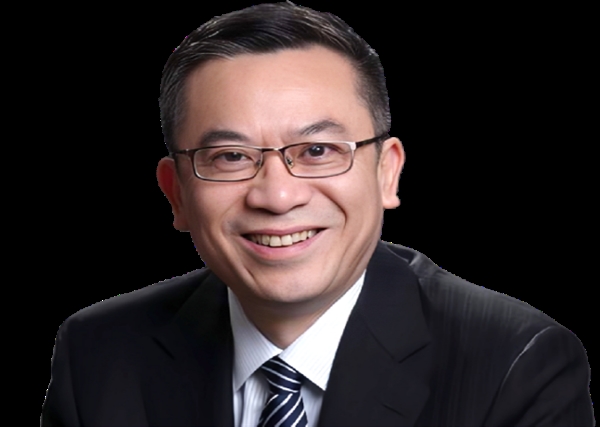
直播时间:2024年11月8日(周五)20:00-22:00
直播平台:

科学网APP
https://weibo.com/l/wblive/p/show/1022:2321325098449497620894
(科学网微博直播间链接)

科学网微博

科学网视频号
【直播简介】
三位院士齐聚 iCANX Talks!北京时间2024年11月8日晚八点,iCANX Talks 第211期邀请到了中国工程院院士、温州医科大学校长李校堃,中国科学院院士、中山大学肿瘤防治中心常务副院长马骏,以及中国工程院院士、北京大学人民医院血液科主任黄晓军担任主讲嘉宾,汕头大学医学院特聘教授吴杰、中山大学肿瘤防治中心副研究员吕佳蔚担任研讨嘉宾,中山大学党委副书记张琪担任主持人。
这将是一场汇聚顶尖学者的盛会,共同探讨前沿科技与学术挑战!FC碰碰胡老虎机法典-提高赢钱机率的下注技巧精彩,敬请期待!
【嘉宾介绍】

Xiaokun Li
温州医科大学
Theoretical Innovation and Clinical Application of FGFs-based Drugs
【Abstract】
Recently, the biopharmaceutical industry in China has developed rapidly, but the gap is still obvious compared with Europe and North America. As an important branch of biotechnology drugs, biomacromolecule drugs are the key therapeutic targets for tumor, regeneration, metabolism and immunity. The Lacks of innovation in target and structure are still the neck pinching challenge, which restricts the development of biomolecule drugs in China. Taking fibroblast growth factors (FGFs), the largest subfamily of cell growth factors, as the research object, the speaker summarized the biological properties of FGFs, the solution to the challenge of drug development, and demonstrated the new function and mechanism of FGF regulating glucose and lipid metabolism, as well as the development of the clinical application of FGFs-based drugs. He also introduced how to promote the construction of high-level platforms in cultivation of young sci-tech talents and local service through multidisciplinary interaction in this process.
近年来我国生物医药产业发展迅猛,但和欧美相比差距依然明显。生物大分子药物作为生物技术药物的重要分支,是肿瘤、再生、代谢、免疫的关键治疗靶点。缺乏靶点创新和缺乏结构创新仍是制约我国大分子药物发展的掐脖子难题。演讲者以细胞生长因子最大的亚家族,成纤维细胞生长因子(FGFs)为研究对象,深入总结了FGFs的生物学特性、如何破解成药难题、阐释FGF调控糖脂代谢新功能与新机制以及FGFs类药物的临床应用开发,并介绍了在此过程中如何通过多学科交叉促进高能级平台建设、人才梯队建设和服务地方。
【BIOGRAPHY】
Xiaokun Li is a deputy to the 14th National Peoples Congress, academician of the Chinese Academy of Engineering, National Teacher Model, National Teaching Master, president of Wenzhou Medical University, director of the National Key Laboratory of Macromolecular Drug Development and Manufacturing, director of the National Engineering Research Center of Cell Growth Factors Drugs and Protein Biologics, and director of the Provincial and Ministerial Co-founded Innovation Center for Biomedicine.He has been engaged in the research of growth factors in tissue regeneration and systemic regulation for more than 30 years, and has achieved a series of original achievements in the field of growth factors and diseases, successfully making China the first country to develop and commercialize FGFs. These achievements provide important means of treatment for burns and trauma, chronic wounds, diabetic complications, emergency, and national defence preparation. He has published more than 200 papers in Nature, Cell Metab, Mol Cell, Circulation et al. He has been awarded the Second Prize of National Natural Science, the Second Prize of National Technological Invention, the Second Prize of National Scientific and Technological Progress, the First Prize of Natural Science of the Ministry of Education of China, the He Iiang and He Li Prize for Scientific and Technological Progress, the Tan Jiazhen Life Science Award, Guanghua Engineering Science and Technology Prize, and the Outstanding Contribution Prize in Translational Medicine.
李校堃是第十四届全国人大代表,中国工程院院士,全国最美教师,国家教学名师,温州医科大学校长,大分子药物与规模化制备全国重点实验室主任,细胞生长因子与蛋白制剂国家工程中心主任,生物医药省部共建协同创新中心主任。30余年从事细胞生长因子再生与系统调控研究,在细胞生长因子与疾病研究上取得一系列原创性成果,使我国成为世界上第一个将FGFs细胞生长因子研制成功并投产的国家。为烧伤创伤、慢性创面及糖尿病并发症等,急性救治及国防战备提供重要治疗手段。先后在Nature, Cell Metab, Mol Cell, Circulation等发表论文200余篇。曾获国家自然科学二等奖、国家技术发明二等奖、国家科技进步二等奖、教育部自然一等奖、何梁何利科学与技术进步奖、谈家桢生命科学奖、光华工程科技奖和转化医学突出贡献奖等重要奖项。

Jun Ma
中山大学肿瘤中心
Promoting Technological Innovation Guided by Clinical Issues—— Nurturing Innovative Talents in Research
【ABSTRACT】
Nasopharyngeal carcinoma (NPC) is notably prevalent within China, presenting critical challenges inclusive of inadequate early detection rates, diminished survival outcomes for late-stage patients, and compromised post-treatment quality of life. Through rigorous investigation of precise diagnostic methodologies and novel therapeutic protocols tailored to NPC, Prof. Ma and his research team have spearheaded efforts to reevaluate and redefine clinical staging criteria. They have also pioneered the development of a therapeutic strategy characterized by enhanced efficacy and reduced toxicity. Furthermore, Prof. Ma has played a seminal role in the establishment of international treatment guidelines, thereby significantly impacting global clinical practices, positioning them as a leader on the global stage. During the project implementation, he continuously trained young individuals, successfully nurturing a group of talents with national-level titles.
鼻咽癌高发于中国,存在着早期患者就诊率低、晚期患者生存率低、治愈者生活质量低的问题。通过对鼻咽癌精准诊疗的深入研究,马骏院士带领团队改写鼻咽癌临床分期新标准,创立增效减毒的治疗策略,领导制定了国内外诊疗指南,指导了全球的临床实践。在项目开展过程中,不断锻炼青年人,最终实现了我国鼻咽癌诊疗水平从“跟跑”到“领跑”的跨越。
【BIOGRAPHY】
Jun Ma is Academician of the Chinese Academy of Sciences, the Executive Vice-president of Sun Yat-sen University Cancer Center. He is also the President-designate of the Nasopharyngeal Carcinoma Gordon Research Conference (GRC), the Convener of the Discipline Evaluation Group for Special Medicine of the Academic Degrees Committee of the State Council, the Member of the 8th Science and Technology Committee in the field of Life Sciences and Medicine of the Ministry of Education, the Chairman of the Nasopharyngeal Carcinoma Committee of the Chinese Society of Clinical Oncology(CSCO) and Chinese Anti-Cancer Association(CACA), the Core Member of the American Joint Committee on Cancer (AJCC) NPC Clinical Staging Committee, the Member of the ASCO Asia Pacific Regional Council.Prof. Mas research focuses on the precise diagnosis and treatment of nasopharyngeal carcinoma (NPC), he established NPC clinical staging standards and developed novel strategies for enhancing efficacy while reducing toxicity in NPC treatment. Furthermore, he led the development of “Chemotherapy in Combination with Radiotherapy for Definitive-Intent Treatment of Stage II-IVA Nasopharyngeal Carcinoma: CSCO and ASCO Guideline”. It provides clinical guidance worldwide and has significantly improved Chinas NPC diagnosis and treatment capabilities, positioning them as a leader on the global stage.As the corresponding author, he has published numerous high-level papers in prestigious journals like NEJM, Lancet, JAMA, BMJ, Nat Medicine and Cancer Cell. His achievements have garnered prestigious accolades including the "State Scientific and Technological Progress Award", "Chinese Medical Science and Technology Award", "University Scientific and Technological Progress Award of the Ministry of Education", etc.
马骏,中国科学院院士,中山大学肿瘤防治中心常务副院长,担任国际鼻咽癌Gordan大会候任主席、国务院学位委员会特种医学学科评议组召集人、第八届教育部科学技术委员会生命医学部委员、中国临床肿瘤学会鼻咽癌专委会主委、中国抗癌协会鼻咽癌专委会主委、美国 AJCC 鼻咽癌临床分期委员会核心成员,美国ASCO 亚太委员会成员,美国ASCO科学审查委员会成员等职。马骏院士的主要研究方向为鼻咽癌的精准诊治,提出鼻咽癌临床分期诊断国际新标准,创立晚期鼻咽癌化疗联合放疗增效新方案及低风险鼻咽癌减毒治疗新策略,领导制定《中-美临床肿瘤学会鼻咽癌诊治国际指南》,指导了全球临床实践,实现了我国鼻咽癌诊疗水平从“跟跑”到“领跑”的跨越。作为最后/唯一通讯作者在国际医学顶尖刊物发表论著如NEJM、Lancet(3篇)、JAMA、BMJ(2篇)、Nat Med、Cancer Cell、Lancet Oncology(5篇)、 JCO(2篇)等。作为第一完成人获国家科技进步二等奖3项,获得中华医学科技一等奖(3项)、高等学校科技进步一等奖(2项)等奖项。

Xiaojun Huang
北京大学人民医院
New Era for All ogeneic Stem Cell Transplantation (Allo-SCT)
【ABSTRACT】
The shortage of donors for hematopoietic stem cell transplantation (HSCT) has long been a significant challenge. To address this worldwide challenge,Dr. Xiao-Jun Huang and his team, from the National Clinical Research Center for Hematologic Disease at Peking University People’s Hospital, developed the non-in vitro T-depleted haplo-matched hematopoietic stem cell transplantation technology system was named the "Beijing Protocol" by the Worldwide Network for Blood & Marrow Transplantation (WBMT). This technology system has brought hope of life to countless leukemia patients.This innovative protocol uses granulocyte colony-stimulating factor (G-CSF) and anti-thymocyte globulin (ATG) to enhance graft engraftment and reduce graft-versus-host disease (GVHD). It has not only improved haplo-SCT outcomes but also established it as a viable first-line treatment for acute leukemia. Internationally, the Beijing Protocol increased the success rate of haploidentical transplantation from 20% to 70%, achieving results comparable to chemotherapy and HLA-matched SCT, with outcomes better than chemotherapy.The Beijing Protocol is noted for inducing T-cell tolerance through the upregulation of suppressor of cytokine signaling 1 (SOCS1), a mechanism that mitigates GVHD. Additionally, Huang’s team identified N-acetylcysteine (NAC) as a method to address poor graft function, further enhancing SCT success rates. The protocol’s impact is clear in the rapid expansion of haplo-SCT in China, reflected in the significant increase in transplant centers and annual haploidentical transplantation cases. However, there are still areas in the Beijing Protocol that could be further optimized in the future.This breakthrough has transformed the global landscape of transplantation, making groundbreaking contributions to the field of allogeneic HSCT, particularly in the development and refinement of haploidentical SCT. Their research has expanded the donor pool, and set a global benchmark for SCT, optimized transplant outcomes, making the protocol more accessible to a broader patient population.
长期以来,造血干细胞移植(HSCT)面临着供者短缺这一全球性难题。为了解决这一挑战,北京大学人民医院国家血液系统疾病临床医学研究中心的黄晓军教授及其团队,成功研发了非体外去除T细胞的半相合造血干细胞移植技术体系。该技术体系被世界血液与骨髓移植网络协作组(WBMT)誉为“北京方案”,为无数白血病患者带来了重生的希望。这一创新方案通过使用粒细胞集落刺激因子(G-CSF)和抗胸腺细胞球蛋白(ATG),有效增强了移植物的植入效果,并显著减少了移植物抗宿主病(GVHD)的发生率。不仅大幅改善了半相合移植的临床效果,还将其确立为治疗急性白血病的首选疗法之一。在全球范围内,“北京方案”将半相合移植的成功率从原来的20%提升至70%,其疗效与化疗和全相合移植相媲美,甚至在某些情况下优于化疗。“北京方案”之所以取得瞩目成就,得益于其通过上调细胞因子信号抑制物1(SOCS1)来诱导T细胞耐受,从而有效缓解GVHD的独特机制。此外,黄晓军教授团队还发现N-乙酰半胱氨酸(NAC)可用于改善移植物功能不良,进一步提升了移植成功率。该方案在中国迅速推广,移植中心数量激增,每年移植病例显著增长,充分彰显了其深远影响。尽管如此,“北京方案”在未来仍有优化和提升的空间。这一突破性的技术革新彻底改变了全球造血干细胞移植领域的格局,尤其是在半相合造血干细胞移植的开发与完善方面,做出了开创性贡献。他们的研究极大地扩展了供者库,优化了移植疗效,并为全球移植技术树立了新的标杆,使这项生命救治技术惠及FC碰碰胡老虎机法典-提高赢钱机率的下注技巧患者,造福更广泛的人群。
【BIOGRAPHY】
Professor Huang Xiaojun, who graduated from Peking University with a PhD, is a renowned hematologist specialized in hematopoietic stem cell transplantation, cellular therapy and malignant haematological diseases. He has been serving as the Head of Peking University Institute of Hematology and the Director of the hematology department of Peking University People’s Hospital since 2005. He is also the academician of Chinese Academy of Engineering, the fellow of Chinese Academy of Medical Sciences, and the foreign corresponding academician of French National Academy of Medicine. Since 1996, Professor Huang has pioneered the exploration of haploidentical hematopoietic stem cell transplantation (haplo-HSCT). With persistent efforts, he established a series of key techniques of non T-cell depleted haploidentical transplantation, which gradually developed into the novel G-CSF/ATG-based “Beijing Protocol”, increasing the 3-year survival rate from approximately 20% to about 70% in haploidentical transplantation treating leukemia. This system has made significant strides in overcoming the global challenge of donor scarcity, achieving in a new era where “everyone has a donor”. Nowadays, the “Beijing Protocol” techniques have been adopted in over 190 centers in China. The protocol has also been extended to countries worldwide and holds a dominant position globally in the field of haploidentical stem cell transplantation.Professor Huang received worldwide attention and appreciation for his groundbreaking work. He has won numerous prizes, including the second prize of the National Award for Progress in Science and Technology in 2014 and 2017, as well as international awards, such as the prestigious annual Center for International Blood and Marrow Transplant Research (CIBMTR) “Distinguished Service Award” and the “International Collaboration Award” from International Academy for Clinical Hematology.
黄晓军教授,血液病学家,博士毕业于北京医科大学内科血液病专业,长期从事造血干细胞移植、细胞治疗和恶性血液疾病的临床和科研工作。自2005年以来,他一直担任北京大学血液病研究所所长和北京大学人民医院血液科主任。是中国工程院院士、中国医学科学院学部委员及法国国家医学科学院外籍通讯院士。自1996年以来,黄教授在半相合造血干细胞移植(haplo-HSCT)的探索方面处于领先地位。他是我国半相合骨髓移植治疗白血病和其他恶性血液疾病的领导者,创建并形成全球首个非体外去T细胞半相合移植体系,该体系使半相合移植治疗白血病3年生存率从约20%上升至70%左右,开创了骨髓移植中国科学新方法——“北京方案”,基本解决了“供者来源匮乏”这一世界医学难题;引领全球进入人人都有造血干细胞移植供者的历史新时代。如今,“北京方案”已被中国超过190个中心采用,北京方案成为中国首位、全球过半的造血干细胞移植模式。黄教授因其开创性的工作而受到全球的广泛关注。他获得了众多奖项,包括2014年和2017年的国家科技进步二等奖,以及享有盛誉的国际骨髓移植研究中心(CIBMTR)“杰出服务奖”和国际临床血液学学会的“国际合作奖”。
特别声明:本文转载仅仅是出于传播信息的需要,并不意味着代表本网站观点或证实其内容的真实性;如其他媒体、网站或个人从本网站转载使用,须保留本网站注明的“来源”,并自负版权等法律责任;作者如果不希望被转载或者联系转载稿费等事宜,请与我们接洽。